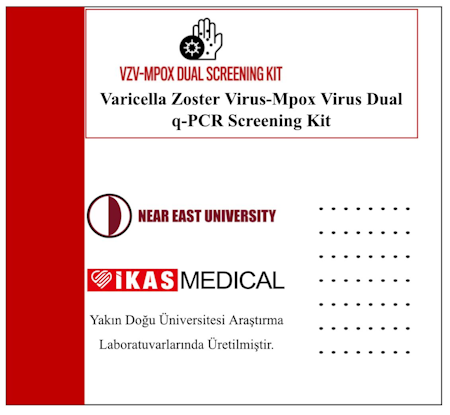
The global spread of Monkeypox (Mpox), a viral infection closely resembling Chickenpox, has underscored the necessity of rapid, reliable diagnostic tools. Often presenting with similar symptoms such as fever, rash, swollen lymph nodes, and muscle pain. Mpox and Chickenpox can be challenging to differentiate based on clinical symptoms alone. The need for precise diagnostic tools has become even more critical as Mpox spreads across continents, prompting the World Health Organization to declare it a global emergency. Accurate diagnosis is essential to ensure that patients receive the correct treatment promptly, as misdiagnosis can lead to inappropriate care and further disease transmission.

PCR (Polymerase Chain Reaction) tests have long been integral to accurate disease identification due to their high sensitivity in detecting viral DNA. However, traditional PCR tests typically target single pathogens, requiring separate tests when symptoms overlap between infections. This is where Near East University’s dual PCR kit offers a solution for clinicians. Designed specifically to distinguish between Mpox and Chickenpox, the kit allows healthcare providers to identify the specific virus from a single sample, eliminating the need for multiple tests and shortening the time to diagnosis.
The dual PCR kit not only accelerates the diagnostic process but also reduces the chances of diagnostic errors, which can have severe implications for treatment outcomes. Early and precise identification of Mpox and Chickenpox is essential for managing patient care, as both diseases demand different medical responses. By streamlining diagnosis, this dual diagnostic kit promises to significantly reduce the risk of misdiagnosis, lower healthcare costs, and improve patient outcomes, ultimately strengthening global public health efforts against infectious diseases.

The Kit Production and Genome Analysis Laboratory possesses the capacity to rapidly develop diagnostic kits for any outbreak and continues its mission of preparedness in this field.